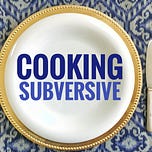Happy New Year everyone!
So a few days ago, I was super psyched to learn that my jazz ensemble was booked for the 2022 Boston Food and Wine Festival jazz brunches, to be held at one of my favorite locations, The Boston Harbor Hotel. With wine on my mind, I thought I’d do a post on it, especially since a lot of folks are curious. As it so happens, I’m married to a wine and whisky aficionado, Jeff Hunter.
Now this isn’t a proper interview at all. We were about to settle down for the season finale of Mandalorian when it occurred to me I should see if Jeff was up for an impromptu interview, something he is more predisposed to do with a glass in hand. He was. So while he prepared for us to sample 2018 vintage Cabernet Sauvignon from two very different locales, one from Alexander Valley Vineyards California, the other from Penley Estate Phoenix Australia , I grabbed a mic.
I know wine events can be daunting. There’s the odd swish and sniff of glasses; the confident gargle, and the spit. And what about the knowing look you get when you opt to swallow your sip ‘coz goodness knows you’ve paid good money for this! And then there’s the jargon— “structured,” “hint of oak,” “tannic,” that defines moments of deliberation.
It’s easy to forget that a wine palate is cultivated. Unless vinification is a family business or inherent in your culture, there’s a big chance your first sip of wine was disappointing and far from how you imagined it to be. My parents let us have a sip or two when we were kids and I did not understand what the big to-do was. Even in my college days it wasn’t something I enjoyed though I learned to tolerate it because I badly wanted to travel to Europe and I thought wine was something everyone had with their meals. In the 70’s and 80’s in Manila, I remember drinking Blue Nun Riesling and Cold Duck champagne in our family events. Paul Masson Chablis was the main wine served at my 18th birthday party debut, an important milestone in Filipino society. At the time, and in a nation of beer and whisky drinkers, any wine at a party was impressive, even if they all tasted like tart juice or downright vinegary. In a hot tropical country like the Philippines where houses don’t have basements, cellars, cool pantries, nor any concept of proper storage, it’s highly likely we’d been blissfully toasting with turned wines and thinking that was cool.
So we all start somewhere and my first point is, wherever you are in your wine journey is okay. Second, over time and as you explore a breadth of varieties, your palate will evolve. What you find pleasant today may not be so tomorrow, and the opposite could also be true. Third, what is considered “good,” even by experts, need not be expensive. Though price point can be indicative of quality, it is also affected by supply (limited production usually is pricier), brand name, popularity and other factors that have nothing to do with quality. Wine regions like Bordeaux (France) or Napa Valley (US) have more cachet with some people than Australian or Argentinian wines, hence my earlier example of two 2018 Cabernet Sauvignon wines we were comparing, both very good and under $20, with the Penley Estate Phoenix Australia rated #69 in the Wine Enthusiast top 100 wines.
Learning about wines is fun and a lifetime activity. While I can barely remember vineyard names, I know what I like, am confident about food pairing , and am more articulate about my descriptions, which means, I can pretty much fake my way in an event. I’m fortunate to have learned from others and most especially Jeff, who often cooks dishes with particular libations in mind, such as this evening’s Seafood Cioppino paired with 2006 Constanti Brunello di Montalcino, which means, a lot of our dinners are mini wine tasting events.
Since I have a resident (literally) wine expert on board, and he now has the mic, let’s see what he has to say. Bear in mind, we’ve had a few glasses at this point.
Marlene: So I’m here with Jeff, an avid wine and whisky collector, purveyor in auctions and former wine consultant. So Jeff, tell us a bit more about your passion for wine.
Jeff: Oh, good evening. Thanks, Marlene. Thanks for the nice introduction. My name is Jeff, Jeff Hunter, and I've enjoyed wine for many years. I can recall the first case I got of an older Bordeaux that I kept in my parents’ basement. And that was kind of the beginning to my desire to collect. I just love the smell of the case of wine, the wood, the ability to taste that wine over the course of many dinners, as it evolved, and how long it would age and trying to correctly predict when I would drink it.
Marlene: What kind of wines should we be looking at?
Jeff: Okay, we're gonna talk about popular wines or those that are less discovered at Wine Festivals. So if you're a curious person, and you would be interested in trying different regions, Lebanon, has some interesting things that are coming out. Israel as well has some fabulous Cabs. So explore. I'm not too familiar with Greece and Italy was always a mystery to me. But the more I've tried and the more I've looked at the maps of the different landscapes and wine producing regions of the various countries, the more I've gotten to appreciate all the things that make up the different wines of Italy, let's say, France, as well, obviously, with many different wine producing regions, so great to be an explorer. And there's a lot of great wines being produced today around the world.
Marlene: Any favorites?
Jeff: Personally, I've been really enjoying something that's not as popular as it used to be. That's the Australian Cabernets and Shiraz. I just love those big, jammy, bomb-y types of wines and the concentration and the freshness of fruit that I find in some of them. So it's been kind of fun enjoying those, otherwise I go to, for sure, vintage Bordeaux. Always buy the good years, sit on them, give them time, 5-10 years to come around. So get them early and be patient.
Marlene: What about unusual wines?
Jeff: I think that as esoteric wines go, the Tokaj of Hungary can be quite fascinating. And I was able to purchase six bottles of the Essencia of Pajzos from Tokaj, and that's the best of the best. It's a 1993 Vintage Robert Parker who's the wine critic gave it an O M G 100 points. Said it tasted like heaven. Amazing wine. Residual sugar is sky high but yet there's still some crisp snap through all the apricot flavor. Amazing wine. I think I paid $125 a bottle with a discount should be about $300 to 500 at this point in 2022.
Marlene: Lots of people are curious about wine events. For those who’ve never been to one, can you perhaps give an idea on what they can expect?
Jeff: Going to wine festivals has always been a fun thing. I've always enjoyed the opportunity to taste many wines and a big gathering. And my favorite way of doing this is to have a friend who works in the wine industry and then have him get you in for free as his roadie; you can help him bring his wines in, and then maybe even help pour some of his wines, and then get to go in and check everything out for free. That's my favorite way to go into wine festivals.
Marlene: Ok, ok, let’s be serious. If it was for like, you know, just a regular Joe, how would it be?
Jeff: Of course yeah. You know I do love wine festivals and my approach to attending a wine festival based on the limited amount of time I have with so much to taste. And so I would recommend getting in doing your research. Look at the listing, see who's attending, see who's pouring, see who's pouring what. Stay away from the pedestrian wines, focus on your whites first. So you don't ruin your palate. Get around, it doesn't matter if the table has red or white just stay with the whites. You can always come back for the Reds later. And then just keep moving through the festival. Don't get bogged down. And as the more you taste and don't forget to spit because the more you taste, the more you can become a little bit more friendly with all the participants and lose valuable time-- tasting time. Focus on the big boys at the end, the big reds, and make sure you get them before they run out because the popular ones do go fast.
Marlene: Thank you, Jeff.
So let me clarify. Jeff’s point is to maximize time at a wine event, and he’s just outlined an efficient way to go about it, if that’s your goal.
1. Do a bit of homework so you can home in on what you really want to try, to avoid palate fatigue and being too inebriated to appreciate what you’re consuming.
2. Spit. You can’t taste a whole lot of wines and be sober otherwise. In other words, though ruthless:
Not spitting = inebriation= friendliness=waste of tasting time
3. Start with whites and end with reds. The reverse will ruin your palate for whites.
Now most of us don’t approach wine events with Jeff’s single-minded efficiency, nor should you, unless you are a collector. For everyone else, I’d say, go where you will, listen to the wine curators, ask questions (they love this) and meet people. Have fun. And if you’re worried about looking gauche, here are a few tips:
1. Hold wine glasses by the stem, not the glass, so you don’t warm the wine (or get fingerprints on glass)
2. Swish the wine in the glass to aerate and release the bouquet; sniff to appreciate. Note what you’re smelling—apricots, raspberries, etc.
3. Sip together with a slight breath in, and swish around the back of your mouth for aeration. It looks and sounds a bit like a gargle, but isn’t. It’s not a pretentious action. Retronasal olfaction is smelling and tasting from the back of your mouth, and better perceived when wine is aerated.
4. Spit. In bucket.
5. Describe what you smell and taste with fellow participants and wine curators so you can build your wine vocabulary.
6. And finally, if like my sister, Manischewitz is your favorite wine, never admit it.















Share this post